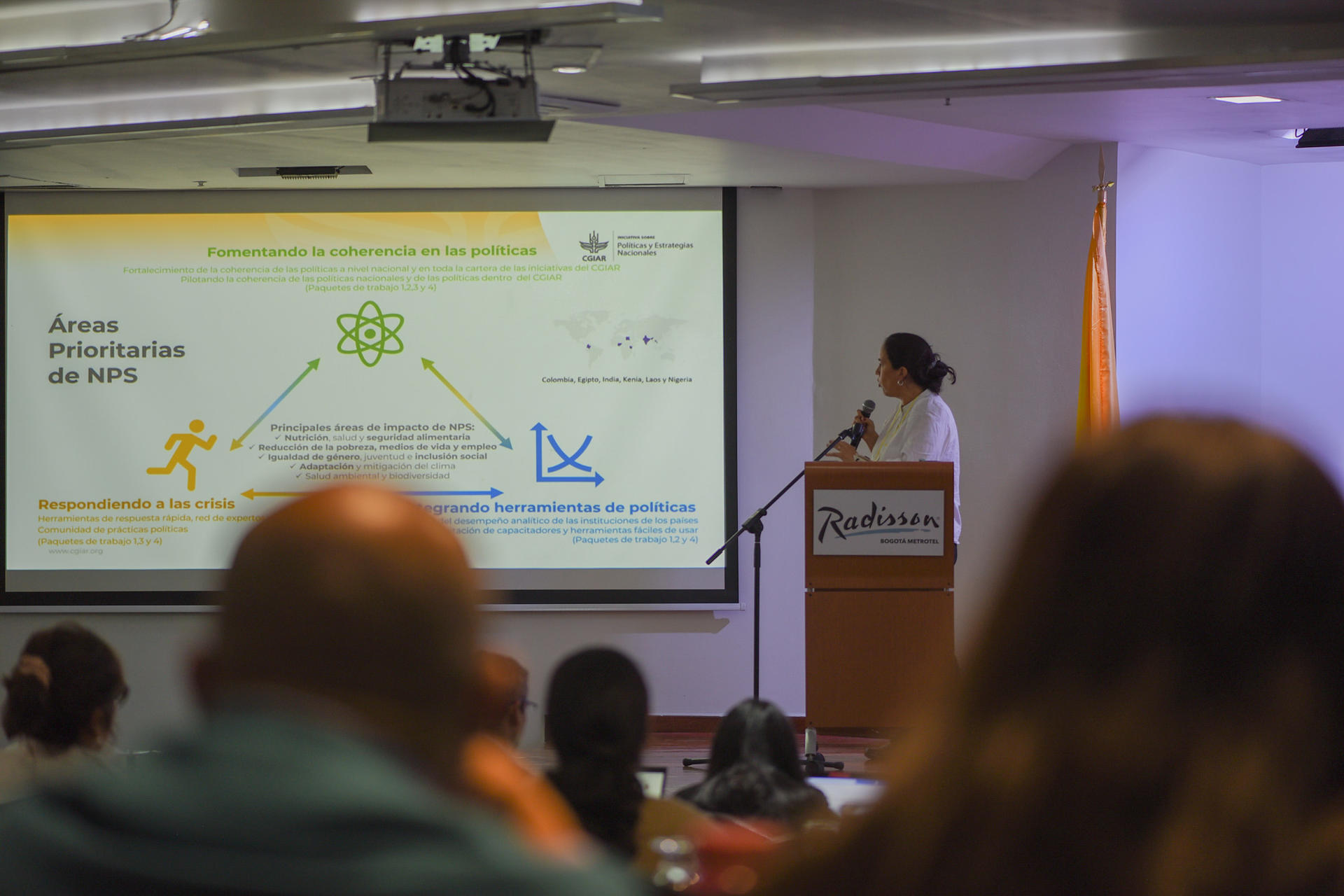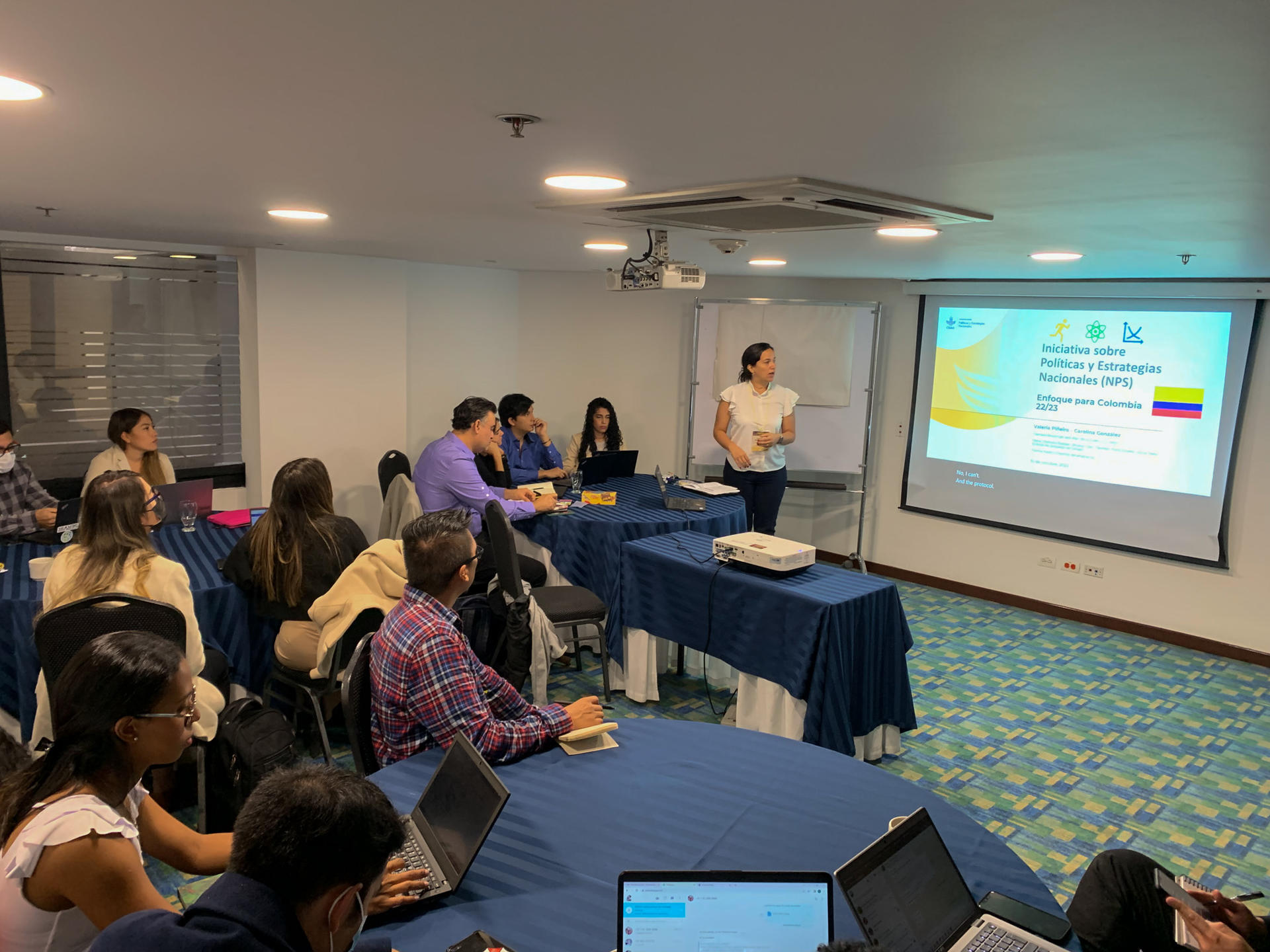CGIAR initiative examines the coherence of policies to help avert future food and water crises in Colombia

Illegal crops sprayed with chemicals that affect surrounding crops, rivers contaminated by the constant bombing of oil pipelines, forests cut down and converted into housing areas due to forced displacement and agricultural production— these are scenes repeated over the last five decades in Colombia. This is why issues surrounding the environment became central during the development and implementation of the peace agreement that the Colombian government and FARC guerrillas signed in 2016.
For several experts, the peace agreement was an opportunity for environmental issues to play a major role in the political agenda. However, it could open up the possibility of extractive operations entering unexplored areas, in addition to unintended consequences during the land restitution process. Data such as the increase in deforestation after the signing of the agreement, although not a direct and confirmed cause, generate doubts about Colombia’s policies centered on the natural environment and peace-building.
“Sometime, what is done with the hands, is destroyed with the feet. However, this can be fixed by understanding the coherence between policies,” said Dr. Augusto Castro-Nuñez, leader of the Low-Emission Food Systems research group at the Alliance of Bioversity International and CIAT, echoing a saying. "For example, if you have a protected natural area and limit access to the use of the forest and its resources to indigenous and peasant communities, there will possibly be a conflict, because their livelihoods depend on the access to natural resources."
The situation described above is not unique to Colombia; it happens in different contexts. At CGIAR, one initiative seeks to address this: the National Policies and Strategies for the Transformation of Food, Land and Water Systems, or NPS for short.
Launched in October in Colombia, NPS aims to provide information to decision-makers about the coherence between the policies in place from 10 years ago to the present day in six countries: Colombia, Egypt, India Kenya, Niger and Laos. This helps address current crises and future development needs.

Photo: Workshop for the presentation and joint construction of the work plan of the NPS initiative in Bogotá, Colombia / Daniela Salas / Alliance of Bioversity International and CIAT
Part of what NPS will do is to undertake a policy and institutional landscape analysis, a work package that Castro-Nuñez leads in Colombia. This seeks to assess the coherence of public policies on food, land and water issues and interventions of CGIAR initiatives at the national level.
The policy and institutional landscape analysis will determine whether land uses align with objectives toward achieving food security and water protection. Specifically, it will identify which policies exist and how they are related and see whether they are fulfilling their missions or alternatively affecting each other.
After analyzing the coherence of policies in Colombia and integrating policy instruments, the aim is to provide a rapid response to the crises that the country is going through or may go through in the future, through communities of practice, spaces for interaction and reflection on issues and challenges to promote informed decision-making.
For Carolina Gonzalez, the leader of the NPS initiative in Colombia, it is vital to work hand in hand with the partners.
"The idea is that the partner is always there, that they tell us what information they need to generate better policies," Gonzalez noted.
Partners of NPS in Colombia include the ministries of agriculture and rural development and of environment and sustainable Development, the National Planning Department and the Banco de la República. The initiative also partners with Colombian academic bodies, namely the Pontificia Universidad Javeriana and the Universidad de los Andes.
Gonzalez also highlighted the importance of joining efforts of other CGIAR initiatives in Colombia. These are Agrilac, Nature+ and Mitigate+.
Photo credit: Carolina González presenting the NPS initiative in Bogotá, Colombia / Elizabeth Ramírez / Alliance of Bioversity International and CIAT
